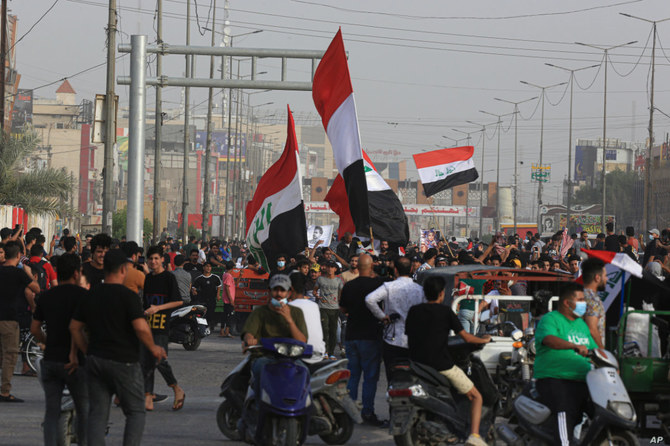KARBALA, Iraq: Hundreds of Iraqis demonstrated on Friday in several southern towns and at a government-run power plant against prolonged electricity cuts as the mercury soars.
“We want electricity to be restored and if it isn’t we’re not leaving this plant. We’re going to stay put and shut it down,” demonstrator Diaa Wady said outside Al-Khairat electricity station near Karbala.
The predominantly male crowd surrounded and attacked the car of an official, smashing its rear window and shouting.
“We are peaceful protesters who are here only for our rights. Our demand is for electricity to return and if it doesn’t we’ll bring our tents and camp out,” said frustrated demonstrator Sajjad Aoun Al-Kiriti.
With daily highs topping 50° Celsius for several days in succession, dozens also protested Friday in other southern provinces such as Maysan, Wasit and Al-Kut.
The Electricity Ministry says the blackouts, which started last week in the south before spreading to the rest of Iraq, were caused by unexplained attacks on power lines.
FASTFACTS
Iraq buys gas and power from Iran to supply about a third of its power sector, dilapidated by decades of conflict, poor maintenance and corruption.
But Iran decided last month to cut crucial power supplies to its neighbor, saying the Iraqi electricity ministry owes it more than $6 billion in arrears.
“Someone is trying to destabilize the country and sow chaos,” ministry spokesman Ahmad Moussa said on television.
Electricity Minister Majed Hantoosh resigned in late June, a day before Tehran announced its cutback in supplies. It was the 18th year in succession that Iraq’s minister of electricity has failed to survive the summer season.
Boiling temperatures and power outages often go hand in hand during the summer months in Iraq, but there are other factors behind the latest crisis.
Iraq says it is unable to pay because of US sanctions on money transfers to Iran, a deep financial crisis compounded by lower oil prices, and the pandemic.
The government in Baghdad also says few consumers are paying their utility bills, with many stealing electricity by hooking up lines illegally to power mains.
The spate of power cuts has exposed a deep divide between the heatwave haves and have-nots.
While relatively well-off residents of Baghdad can afford generators that crank into action when the national grid falters, others have been struggling to cope without air-conditioning for days.
Government employee Sadiq Sadkan pays about $200 per month to access a generator supplying his middle class neighborhood during blackouts. “I’ve got a gold standard subscription to a private generator, which works 24 hours a day ... it can turn on any time of the day,” Sadkan said.
Seif Talib, a 29-year-old filmmaker who lives in Basra, tries to cope with the heat by scheduling the shooting of outdoor scenes in the spring and saving indoor scenes and editing for the summer.
Talib said that at his home the power has been off more than 12 hours each day since mid-June. His one-year-old daughter cries at night in discomfort, and Talib said he felt increasingly stressed. “Temperatures higher than 50° are normal for us. But the electricity, too? That’s such a complicated problem,” he said.

























